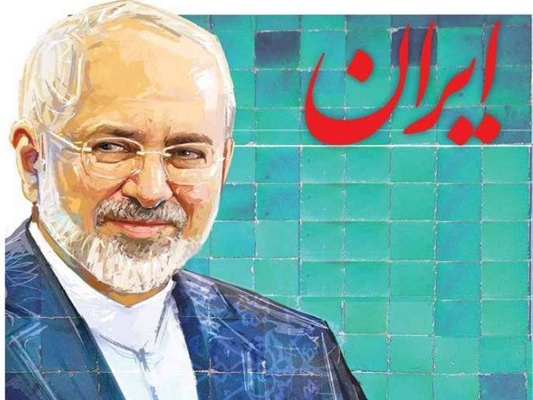Masoumeh Poursadeqi has, in an article published by the analytical news website alef.ir, weighed in on the developments pertaining to US sanctions on Iranian Foreign Minister Mohamad Javad Zarif. Highlights of the article follow.
Some individuals have been put on the sanctions list of the US Treasury.
The band includes the United States’ unilateral sanctions, including the seizure of these individuals’ assets and barring them from entering American soil. However, these sanctions are so wide-ranging and go beyond US borders.
The sanctions imposed on Zarif by the Treasury’s Office of Foreign Assets Control (OFAC) come in line with an executive order by US President Donald Trump, under the pretext that Zarif implements orders by Leader of Iran’s Islamic Revolution Ayatollah Seyyed Ali Khamenei.
It was predicted that after the impositions sanctions on Ayatollah Khamenei, the sphere of bans would expand to include individuals and institutions directly related to him. Zarif is the first such individual to have targeted by sanctions.
These sanctions have two parts: primary and secondary. In the primary part, all of the individual’s assets and interests on those assets in the United States are seized, and it is reported to OFAC accordingly. Generally speaking, OFAC regulations bans all communications with any American individual in the United States who is related to sanctioned individuals’ assets or interests on those assets.
In the secondary part, people are involved in specific transactions with sanctioned individuals will be subjected to sanctions as well. Moreover, any foreign financial institute which has knowingly conducted transactions for, or on behalf of the sanctioned individual, or has facilitated such transactions, could be the subject of sanctions pertaining to the client account or payable account.
Also, the effectiveness of these sanctions outside the United States could, to a great extent, be influenced by psychological elements and fear, which is usually referred to as “over-compliance.”
Another important point is that being put on the Specially Designated Nationals And Blocked Persons List (SND) can have numerous consequences, but only includes Washington’s unilateral sanctions, namely the seizure of assets and being barred from entering the country.
As for the case of Zarif, sanctions imposed on him do not go beyond US borders and other countries can have meetings and news interviews with him.
Basically, all US sanctions are unilateral and other countries are under no obligation to abide by those sanctions. And even if some governments comply with those sanctions, it is due to political or economic considerations and the kind of relations they have with the United States.
Nevertheless, ambiguity still hangs over the issue of visa issuance for the Iranian foreign minister. According the United States’ domestic law, it is forbidden to issue visas to sanctioned individuals. Of course, the US secretary of state is authorized to give permission for the issuance of a visa. However, this visa must be issued based on a “headquarters agreement” signed between the US and UN.
